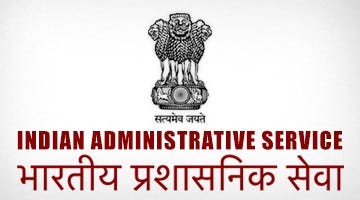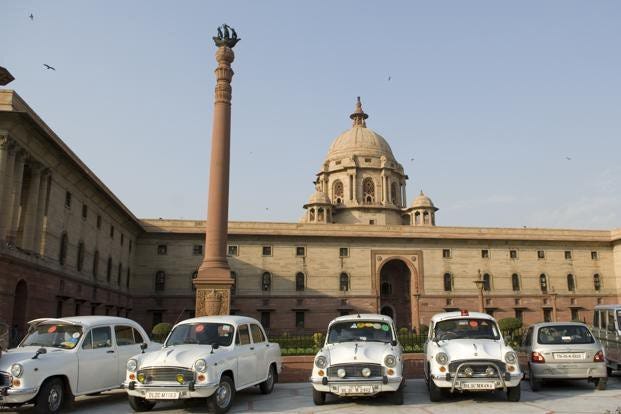The quest to crack this apparent paradox

The Indian Administrative Service (IAS) is arguably a dream job that millions of young graduates aspire for through a competitive examination that is held every year. Given the UPSC’s impeccable record in this merit-driven selection process, the Civil Services Examination is perceived to be the best working example of “equality of opportunity” as guaranteed by the Constitution. However, in spite of the fact that many idealistic and talented young people join the service every year, neither the citizens at large nor the politicians of various shades and hues are willing to rate the overall performance of the IAS as a collective body anything more than “average”. Intellectuals, academicians, journalists and industrialists may concede that a typical IAS officer is bright and intelligent but as a service, IAS is generally labelled as being synonymous with a lacklustre group of self-seeking, careerist, conservative and arrogant members that is incapable of taking bold decisions in national interest.
Politician-Bureaucrat Nexus to Blame?
So, why does the IAS fail to live up to the expectations of the various stakeholders, even as its members are individually acknowledged to be well-meaning, positive and by-and-large persons of integrity? It is easy to propound a vague but popular theory that there exists a politician-bureaucrat nexus that helps the former to push their stated and unstated political agenda, while the latter continues to maintain its reigning (or, shall we say, reining) stranglehold over higher bureaucracy in the Centre as well as in the States to the marginalisation , if not the total exclusion, of “equally qualified” officers of the other All India- and Central Services. IAS is also projected as a conglomerate of officers who are trying to perpetuate an “exclusive club culture”, which arrogates to itself all the skills and qualities that are required to be an efficient and effective “executive” officer at the State and district level and a policy-specialist at the Centre.
Assuming, but by no means conceding, that this is actually and factually correct, it may be instructive to assume this to be an axiom and to thence analyse why the members of this virtual monopoly called the IAS behave/ conduct themselves collectively in the manner to garner the aforesaid pedestrian and prosaic appraisal, which is neither satisfactory nor satisfying.
Incremental approach works
Whether you like it or not, IAS is here to preserve a status quo in public governance. It’s never been its declared objective to come out with revolutionary ideas in the domain of good governance although it suits everyone to talk in terms of innovation, inclusion and empowerment. That is why “incrementalism” is often prescribed as a safe way forward in the various Institutes of Public Administration or Administrative Staff Institutes. Furthermore, executive decisions tend to be scrutinized, sometimes even after decades, by investigating agencies who claim 20/20 hindsight. Moreover, what is seen as failure is heavily punished, whereas success is seldom, if ever, adequately rewarded. In such a working environment it is but natural for the officers to adopt a conservative and safe approach rather than swerving recklessly into untested waters.
Free and fair advice welcome?
This is reflected in the attitude of the officers in terms of the nature and quality of their advice recorded on the files they submit to the political executive. In this day and age, the democratically elected ministers are not only highly educated themselves but may also have access to their own “expert” advice outside of the formal civil service. The advisers could be both formal — like consultants — or informal, forming what is often described as the kitchen cabinet. Thus, increasingly, the political masters are sure of the policy that they want to adopt and implement and the job of the IAS officer in the secretariat or the ministry is reduced essentially to taking the same through the procedural official drill of sequential steps to obtain the final approval in accordance with the Rules of the Business at the appropriate level. A contrarian view, or even an alternative view, or pointing out the potential pitfalls in the favoured proposed policy is thus not much appreciated by the powers that be. This creates not only friction and tension but also dissension and the IAS officers tend to get branded as the proverbial naysayers. Ironically, the IAS is also expected to own the paternity of the idea that may be called into question subsequently, with the concomitant disciplinary and criminal liabilities. So, an average IAS officer tries to soft-paddle or divert/ delay the matter, gaining for his service the lackadaisical reputation it eventually builds up. No doubt, the IAS officers are taught, in the training academies, to render free, fair and fearless advice. However, when they see this practice failing all around them, as intelligent creatures with a sharp learning-curve, they jettison this practice fairly early into their service career.
Standing out in the herd
So, how does one stand out of the herd when the cult-like atmosphere is one that compels you to conform? Anonymity has consistently been long preached as a virtue for the civil servants, who have been constantly harangued to be faceless. Some young and enterprising media and social-media savvy officers are, however, quick to jettison this sermon; they sedulously project their small successes in a disproportionately magnified manner. For instance, how a Collector turned a small municipal town into a clean place or how the Collector’s wife is teaching in a dilapidated Government school, deep into the tribal area, of course, on purely honorary basis. Or, where a serving Collector travelled incognito to work as a manual labour in a flood-relief camp in his faraway native state. These are lauded by the media, the general public as well as the so-called intelligentsia, even though these are not the stories of systemic reform. Even the senior colleagues who are able to see through this little gimmick are willy-nilly forced to join the applause of the populace. Nevertheless, this provides the “innovative” officer enough visibility and traction to give his/ her career a significant push.
Anonymity is a virtue?
On the Civil Services Day on 21st April every year, the various innovative schemes submitted by the various states and ministries are conferred the Prime Minister’s National Awards. The winning entries appear to be exceedingly attractive that could potentially make a significant impact all over the country, if implemented in the right earnest. However, no one reviews these laudable initiatives three or fours years down the line to ascertain whether these were truly sustainable. My hunch is that most die a natural death because, by definition, these are just anecdotal micro-initiatives where the Collector spent disproportionately large time and resources on an infinitesimally small problem and, as expected, succeeded or cases of mobile apps which were great in themselves but were never downloaded and used by the people on a significant scale. However, the solutions are either inherently, or for want of adequate resources, incapable of replication on a demographic scale, country-wide.
Mutual respect is the way forward
So how do you expect a typical IAS officer to traverse this complex politico-bureaucratic terrain? I argued elsewhere ( https://theprint.in/opinion/ias-has-now-become-a-customer-service-pleasing-politicians-and-businessmen/111677/ ) that a majority of officers devote better part of their affection to provide 5-star service to the “elite” customers, while the ordinary citizen languishes in serpentine queues. This is perhaps necessary for them to survive. The only way out this quagmire seems to be a continuous dialogue between the top political executive and the officers at the Centre as well in the States and categorical assurances, backed by actual act and conduct, that would convince a substantial majority of the IAS officers that their services are truly valued and that no witch-hunt shall be commenced on a mere error of judgement or a bona fide mistake. The sooner this happens, the better it is for “good public governance” in the country as a whole.
___________________________________________________________________
K.B.S. Sidhu. The author is an IAS officer of 1984 batch of Punjab cadre. The views expressed are his own.
He can be reached on kbs.sidhu@gmail.com or @kbssidhu1961 or https://www.facebook.com/kbs.sidhu
___________________________________________________________________





